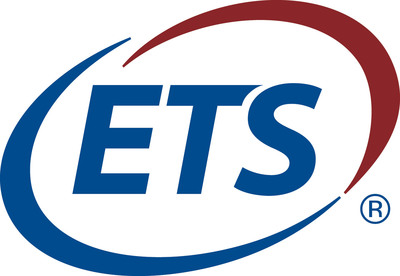PRINCETON, N.J., June 21, 2016 /PRNewswire-HISPANIC PR WIRE/ — As the nation mulls over this question, a new report from Educational Testing Service (ETS), explores the benefits and challenges of such an effort just as policymakers and educators work to ensure a strong start for our earliest learners.

The report, “Exploring Pre-K Age 4 Learning Standards and Their Role in Early Childhood Education: Research and Policy Implications,” was written by ETS researchers Andrea DeBruin-Parecki and Carly Slutzky. The study is based on a nationwide survey of early childhood state and territory directors and administrators, geographically diverse focus groups, and one-on-one interviews.
“Overwhelmingly, throughout conversations and interviews, early childhood leaders and administrators affirmed their perception of the usefulness of having pre-K age 4 national learning standards,” DeBruin-Parecki writes. “The data indicated that having these standards would allow for more collaboration and communication among states and territories, provide more equitable expectations for all children, allow for consistency in language and organization of standards, and drive effective teaching and professional development.”
“Although conversations around this question were very positive,” she added. “…there were also comments about permitting states to continue to create their own teacher strategies and child examples, decide on their own curricula and assessments, as well as professional development, to allow for their own unique child populations.”
Currently in the United States, 50 states, five territories, and the District of Columbia have established prekindergarten (pre-K) age 4 learning standards that are intended to outline skills and knowledge that set children on a path to success in kindergarten and later on. These standards are a centralizing force in early childhood education, providing a bridge between preschool and the elementary grades. However, unlike the current 43 states and 4 territories that have adopted the Common Core State Standards, elementary, secondary and preschool programs do not have common standards.
Based upon the findings from surveys, focus groups and interviews, the authors offered the following policy recommendations:
- design research-based, agreed-upon content for each domain present in standards documents to allow for the evaluation of the content and quality of current pre-K age 4 learning standards across the country
- consider use of similar organization and terminology in early learning standards documents to allow for clearer communication and comparisons across states.
- encourage alignment across domains beyond language and literacy and mathematics.
- plan effective and consistent joint professional development for teachers to promote understanding of the developmental continuum and how to incorporate developmentally appropriate practice into everyday standards-based instruction.
- determine methods for evaluating the effects of varying forms of professional development related to standards-based instruction.
- discuss the creation of national standards or guidelines as a possible beginning solution to equity issues affecting young children attending standards-based preschools.
“The work ahead for developing national pre-K age 4 standards is going to be a long and difficult process that will involve deep conversation, collaboration, and compromise among U.S. states and territories,” DeBruin-Parecki wrote. “Future research will continue to shine a light on the persistent wide variation in current standards and the inequities in learning opportunities for poor children and their teachers.”
Copies of, “Exploring Pre-K Age 4 Learning Standards and Their Role in Early Childhood Education: Research and Policy Implications,” are available through Wiley Online Library.
About ETS
At ETS, we advance quality and equity in education for people worldwide by creating assessments based on rigorous research. ETS serves individuals, educational institutions and government agencies by providing customized solutions for teacher certification, English language learning, and elementary, secondary and postsecondary education, and by conducting education research, analysis and policy studies. Founded as a nonprofit in 1947, ETS develops, administers and scores more than 50 million tests annually — including the TOEFL® and TOEIC® tests, the GRE® tests and The Praxis Series® assessments — in more than 180 countries, at over 9,000 locations worldwide. www.ets.org
Logo – http://photos.prnewswire.com/prnh/20120110/DC33419LOGO







